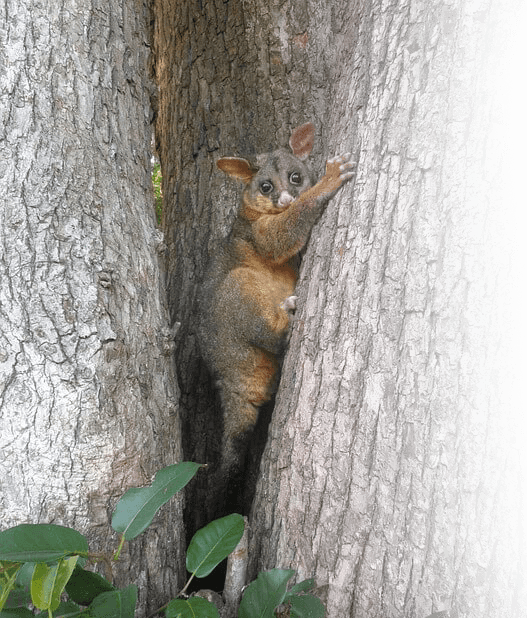
A possum infestation is not difficult to detect. The critters quickly adapt to living simultaneously with humans and often find a sanctuary in roofs and trees in the garden. Possums are much noisier than rodents and tend to make a big mess in the yard.
If you're still not sure if it's a possum that steals your good night sleep, check for these signs of possum infestation in your property.
Possum droppings are called pellets. They are long and crescent-shaped and are either separated or stacked together in groups. Faeces are around 20-30 mm long and 5-15 mm wide.
Possum droppings have a distinctive smell. The colour and texture may vary based on the possum's diet. Possums usually leave droppings around logs and trunks. You can also find stacks in the attic or on the roof.
The possum's forefeet are different from their hind feet. The forefoot looks like a hand. It has five fingers each with a big, curved claw on end. The hindfoot has an opposable thumb without a nail. Usually, you'll see the imprint of the front paws.
The imprint can be around 3-4 cm consisting of four or five cushions with four or five toe pads. Possums walk on all four feet, and the space between the placement of the right and left feet is around 10-13cm.
Possums spend the day sleeping above the ground - in dents and holes in trees, even on the attic or ceiling. A possum can have several dens around your property, so you need to check around for fur, footprints, droppings or distinctive smell.
If you notice damages on the plants and trees in your garden, this could be a sign that you're dealing with a possum. The trees' signs may include broken branches, bare branches with only a couple of leaves left on them, chewed leaves, and more.
Horizontal scratches on the bark are most likely caused by a possum as well. They usually chew the bark on the trees to mark them as their territory. Scratches on the bark may happen as possums use their claws to climb up and down the trees.
Possums can damage the ground plants as well. They tend to leave a mess behind. The ground beneath their dent is often covered with partially eaten leaves and fruits. If you notice that the stems of the plants are crushed, the fruits and flowers are consumed, and the leaves have chew marks on them, it's probably because a possum is rampaging through the garden.
